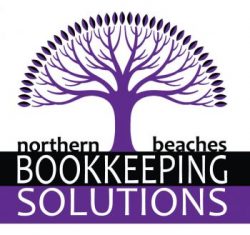Are you working during your break? While some employees may choose to work through their breaks to stay on top of their workload, it’s important for both employers and employees to understand the legal implications and payment requirements. Here’s what you need to know:
What Are Employee Break Entitlements in Australia?
Under the Fair Work Act, employees in Australia are entitled to specific break periods based on their hours worked. These breaks include:
- Rest Breaks: Short breaks of 10-15 minutes, typically unpaid.
- Meal Breaks: Unpaid breaks of 30-60 minutes, depending on the length of the shift.
- Overtime Breaks: Additional breaks for employees working extended hours or overtime shifts.
Break entitlements vary depending on the applicable award, enterprise agreement, or employment contract, so it’s essential to review these documents to understand specific break requirements.
Are Employees Paid for Working Through Their Breaks?
If an employee is required to work through their designated break, they must be compensated for that time. Employers cannot ask employees to work during a break without paying them for the time worked. Failure to pay employees for working through breaks may result in wage disputes or claims for unpaid wages.
Can Employers Require Employees to Work Through Breaks?
Employers can request employees to work through their break in exceptional circumstances, such as during busy periods or emergencies. However, this arrangement must be agreed upon in advance, and employees must be paid for the additional work. Employers should clearly communicate expectations regarding break times and compensation to avoid misunderstandings.
Penalties for Denying Breaks or Unpaid Work
Employers who fail to provide adequate breaks or require employees to work without payment may face legal consequences, including:
- Back Payment of Wages: Employers may be required to pay employees for missed breaks, including overtime rates where applicable.
- Fines and Penalties: The Fair Work Ombudsman can impose fines for breaches of award conditions or employment laws.
- Legal Claims: Employees can file claims for unpaid wages, underpayment, or unfair treatment through the Fair Work Commission.
How to Manage Breaks Effectively
To avoid disputes and maintain compliance with Fair Work requirements, employers should implement clear policies regarding breaks, including:
- Document Break Policies: Clearly outline break entitlements in employment contracts or workplace policies.
- Communicate Expectations: Inform employees of their rights to rest breaks, meal breaks, and overtime breaks.
- Track Break Times: Use time-tracking software to monitor break periods and ensure accurate payment for any work performed during breaks.
- Compensate Fairly: Pay employees for all hours worked, including time spent working through designated breaks.
What to Do if You’re Asked to Work During a Break
If you are asked to work during a designated break, consider the following steps:
- Clarify Expectations: Confirm whether the additional work is voluntary or required.
- Confirm Payment: Ensure that you will be paid for the time worked during the break.
- Keep Records: Document the time worked and any communications regarding payment agreements.
- Seek Support: If you are not compensated for working through breaks, contact the Fair Work Ombudsman for assistance.
Conclusion:
Working during a break can impact both employee wellbeing and workplace compliance. Employers must understand their obligations to provide adequate break times and compensate employees fairly for any time worked during those breaks. Implementing clear break policies, maintaining accurate records, and ensuring proper compensation can help avoid disputes and maintain a fair and compliant workplace.
